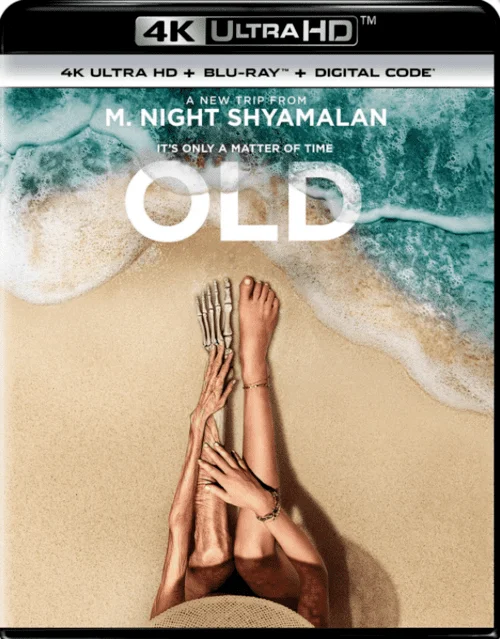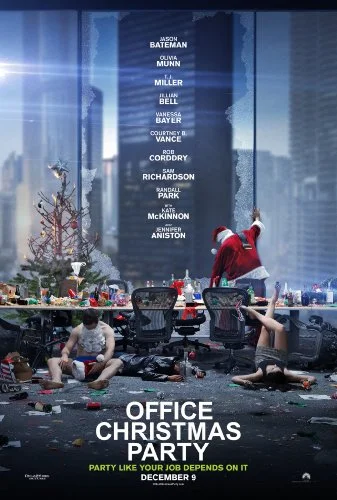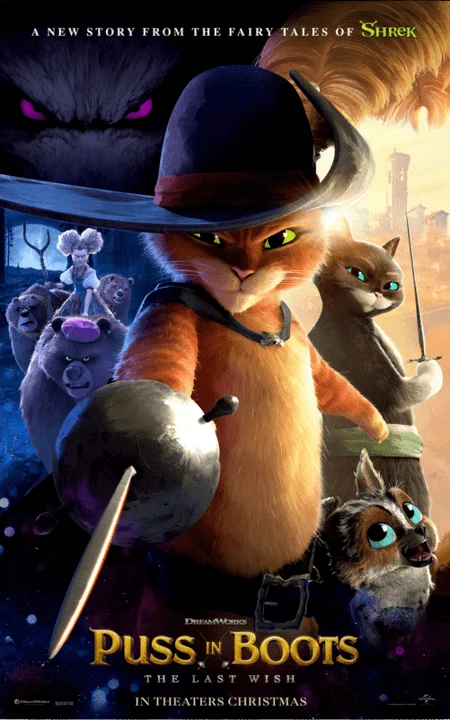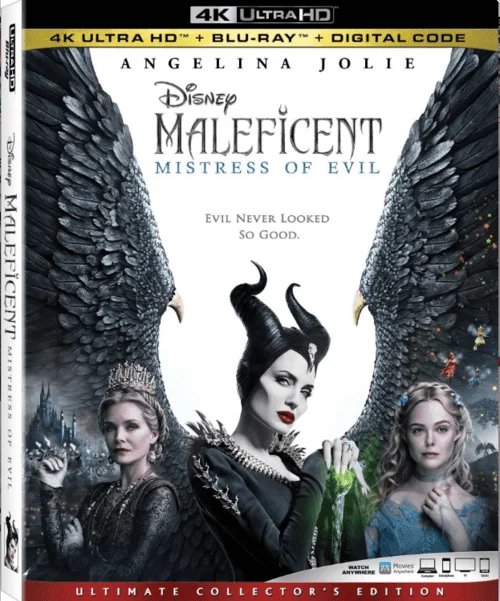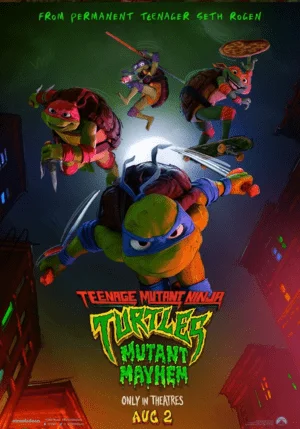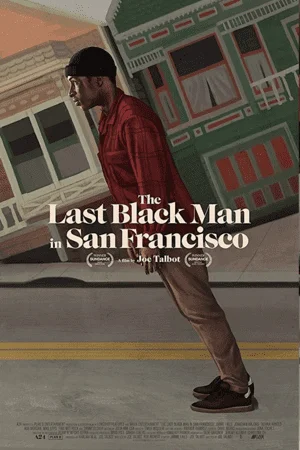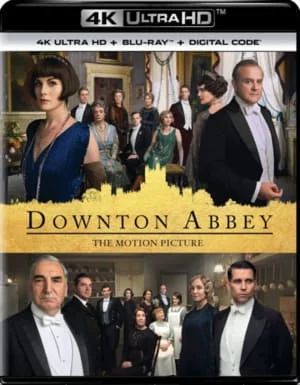
Downton Abbey 4K 2019 Ultra HD 2160p
Cast: Stephen Campbell Moore, Michael Fox, Lesley Nicol, Sophie McShera, Robert James-Collier, Hugh Bonneville, Allen Leech, Michelle Dockery, Phyllis Logan, Laura Carmichael, Elizabeth McGovern, Jim Carter, Geraldine James, Imelda Staunton, Alex Crisp, Joanne Froggatt, Maggie Smith, Penelope Wilton.

The iconic British series "Downton Abbey" returns in feature-length film format. It's been a while since the show's finale, but the main characters still have new concerns. This time, the Crawley family will have to prepare for a very important visit - the Queen herself will come to the Abbey! At the same time, they will have to resolve their internal contradictions, which will not do without conflicts with each other.
Downton Abbey 4K Review
The silverware glistens, the fireplace in the drawing room is lit, the maids have brushed the last of the dust off the tracery railings, the dresses are shipped from town and the footmen's boots are shined: Downton Abbey is preparing for the arrival of the royal couple, its most high-profile guests. It's 1927 on the calendar and that means George V, grandfather of the reigning Elizabeth II, is on the throne.
It is set on April 15, 1912, when the Titanic sank to the bottom of the Atlantic and carried with it the lives of the Abbey's heirs who had been on the ill-fated voyage. For the next twelve years at Downton, the Crawley lords and their servants (it is never clear who is in charge) contested the line of succession, married and broke their engagements, died and was born, survived reputation scandals, World War I, went to prison, competed for top prizes at the orchid fair, mastered electricity and even telephone communication - it took six whole seasons to figure it out.
Julian Fellowes, the irreplaceable screenwriter and showrunner of "Downton Abbey," said goodbye to his characters at the Christmas tree on Christmas Eve, 1926, leaving them in good health and full of hope for reconciliation with imminent progress. And now, nearly five years after the finale, they are back. To say this is the first full length for "The Abbey" is a bit of a lie -- Fellows has delighted fans of the series many times with Christmas special episodes that are barely different from the movie, except that they haven't seen the big screens. From the receipt of a letter from Buckingham Palace to the festive dinner is only two weeks, and have to catch up with everything: in a hurry not only the characters, but also the filmmakers - a concentration of events and micro occurrences per minute of timing is off the scale, it seems that they would have been enough for at least one more season. Slow and measured series was the subject of endless jokes, but this time the viewer can hardly catch his breath: each new plot twist comes on the heels of the previous scene, as if they rush headlong to the credits racing.
The saga of the Crawley family can be called overly predictable and moderately naive, but it is much more appropriate to appeal to tradition: around the clash of the bygone Victorian era and the England of the new century are built all the battles under the house roof. Technological progress and the industrial revolution are equally traumatic and ruthless to all: farmer and earl alike. Capitalism has to coexist with the monarchy, the nobility loses its former privilege, marriages become increasingly unequal, and the maid can become mistress in a "respectable house. In this head-on collision, Fellowes masterfully juggles stereotypes, turning them inside out and endlessly forcing the characters to choose between keeping up with the times or staying true to the traditional way of life. The full-length film hardly takes a step away from its intended course, only sharpening the poles.
Downton Abbey, for those who have been to the estate before, is like coming home after a long absence, where everything is the same old way: the Dowager Countess of Grantham (the inimitable Maggie Smith, who, in view of the big screens, can count on bigger awards) speaks in printed aphorisms, the Crawley sisters cling to each other to their mother's vain attempts to quiet them, Mrs. Patmore is busy in the kitchen, and the younger generation plays with the nanny in the garden to the accompaniment of music that is not hard to guess from three notes. The usual and familiar course of events turns the visit of the royal couple into chaos: the boiler is out of order, and the dress ordered in the catalog is the wrong size, and the monarch's intrusive entourage gets underfoot, not allowing the servants to command in their own home. Fellows is true to his reversed irony on the subject of "who's the master here." Those who find themselves in Downton Abbey for the first time, however, will get a horse dose of an injection of the best traditions of the series. Sparkling outfits, lavish interiors where you can discern every crystal on the dining room chandelier, gradations of humor by class, British etiquette and, of course, dancing - it all swirls past the viewer. He is, however, not forgotten: the new guests in the house are not too lazy to explain who is who and how the chauffeur became a gentleman.
Fellowes' chief merit lies in the words and faces with which he lays down historical changes. Humanizing the era, he does not pass judgement, does not seek morality other than everyday kindness and honor, but only ironizes the mores and habits, but is there a universe where England is possible without tradition? Not just at the turn of the century, but today: the Duchess of Cambridge, Kate Middleton, attended the filming, and the entire group sings in unison about how it was both the most difficult and the best day of work. Conservatives and liberals can fight endlessly, but at the same time they manage to coexist in the same house (Downton Abbey as a whole country), moving forward toward the future through compromise. Behind all this façade of opposing ideologies lies the saga of the family, where one becomes related not by blood, but by a common roof. Without neglecting (and without neglecting either) class etiquette, lords and servants eventually form a bizarre alliance that is much stronger than kinship ties, and only in this way, armed with humor, shoulder to shoulder, are they ready to face progress and say goodbye to dusty patterns (not all, though).
The main thing, as it was in the story, remains the house: generations change, but the estate stands - so it makes no sense to talk about completing the series in full meter. It is endless in both directions of the timeline, another hundred years will pass, everything will change, and Downton Abbey will remain in place. And an argument between a conservative and a liberal will echo from the dining room.
File size: 24.0 GB
Trailer Downton Abbey 4K 2019 Ultra HD 2160p
Latest added movies
Comments on the movie
Add a comment
 like
like do not like
do not like